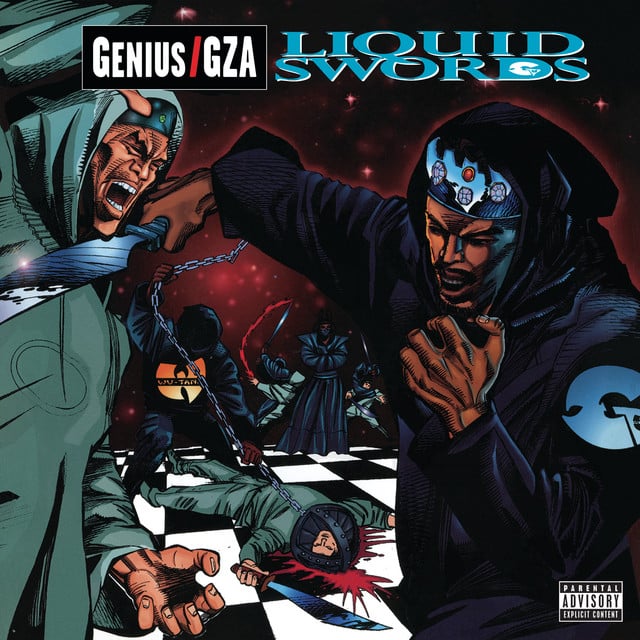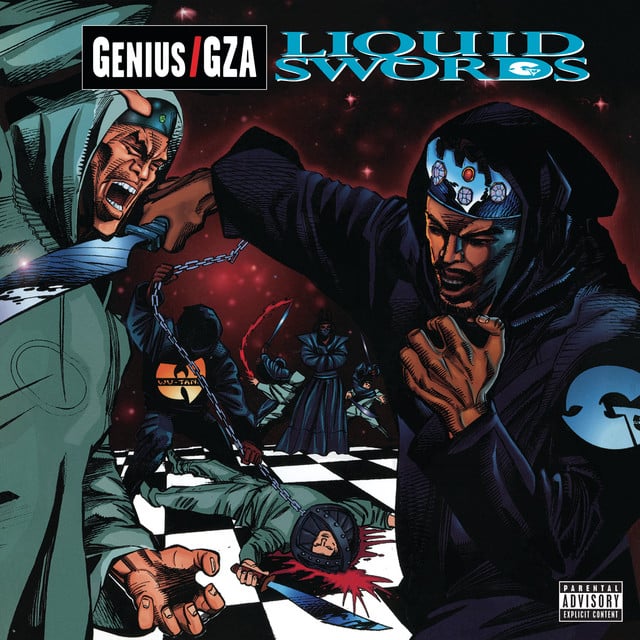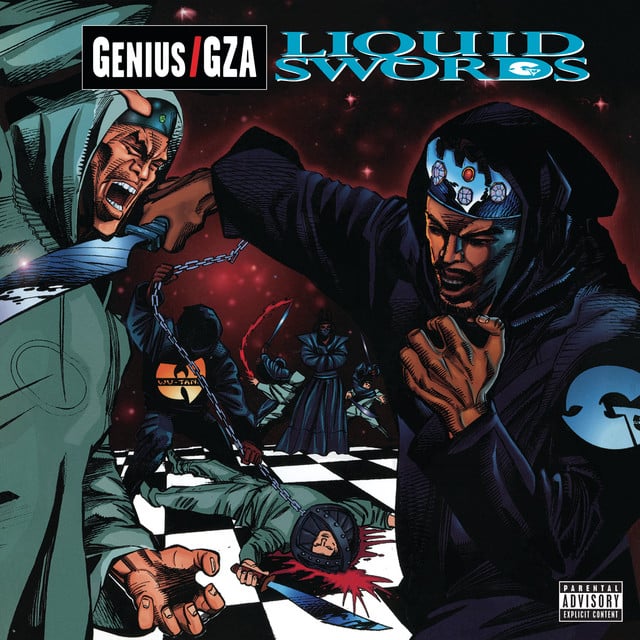Released: 1995 • Features: RZA, Ghostface Killah, Killah Priest
Stepping into the “4th Chamber,” an illustrious cut from “GZA’s” classic “Liquid Swords,” we’re met by a posse of Wu-Tang Clansmen – GZA, RZA, Ghostface Killah, and Killah Priest. This heavy-hitter ain’t your average rhyming session – it’s a labyrinth of historical references, life philosophies, and introspective thoughts, a deep dive into the minds of these lyrical senseis.
From the get-go, the song kicks off with a philosophical choice, the sword or the ball – a metaphor for choosing between a life of struggle and strength or an easy way out leading to death. Now, don’t go misinterpreting – this ain’t about physical death. Nah, they’re talking about intellectual and cultural death.
Ghostface Killah’s verse rock early ’80s vibes, referencing the sky-blue Bally kid – a shout out to Bally Shoes, a sign of luxury worn by drug dealers back in the day. His lines are filled with Wu metaphorical vocab, comparing their squad to raccoons – street savvy, and apple boon drinkers – average folk who grind it out in corners.
Then GZA digs in, spitting his verse with profound questions. “Why is the sky blue? Why is water wet?” – a reflection on the nature of things, and our often-limited understanding. He takes it further, pondering the historical betrayal by Judas, pulling religious context to dissect human behavior.
Killah Priest’s verse is straight fire, painting the picture of a dystopian future, government conspiracies, and cultural warfare. His references to the ‘Bubonic Flu’ and ‘Ebola virus’, hint at the deadly consequences of colonial repression, while the ‘Islamic Asiatic black Hebrew’ symbolizes the fusion of different cultures uniting against oppression.
RZA comes in hard with the last verse. He’s talking about the grind, about providing for his family, about how the streets work. He’s hitting on the complex themes of inherent violence, the striving for a better life, and the hypocrisy of the system.
“4th Chamber” is a layered cake of critical thoughts, social commentary, and personal experiences told through lyrical complexity. Each verse is a chamber of its own, with the artists using their ‘mic-swords’ to cut through the fabric of society. So, strap up, choose your sword, and let the Wu guide you through these chambers.






